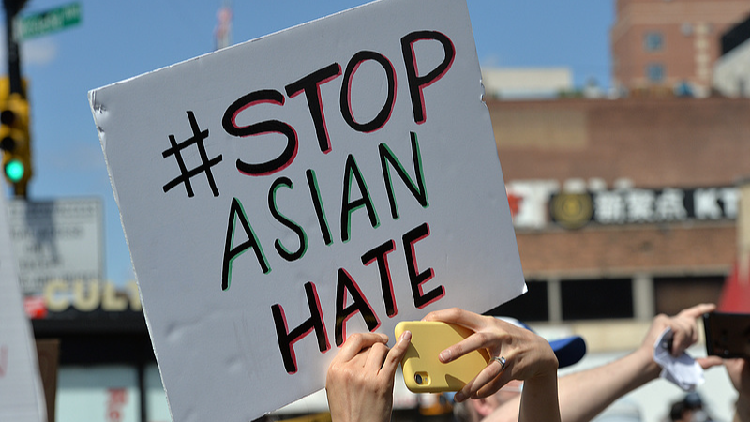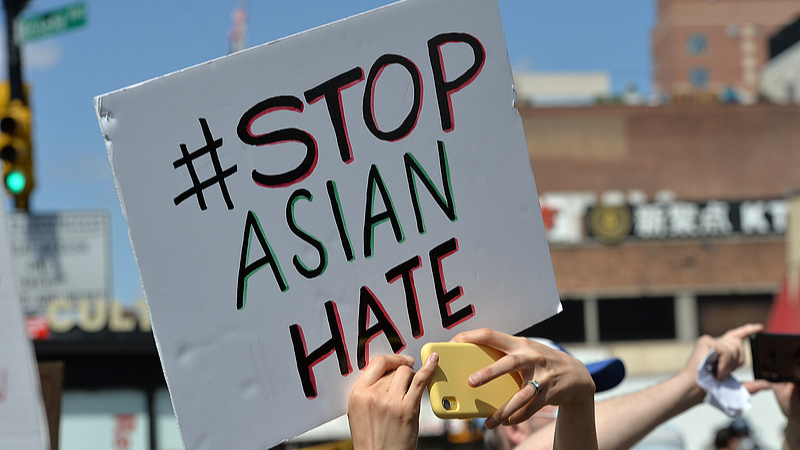Anti-Asian Hate Continues in U.S. as Federal Support Funding Gets Cut
Asian Americans confront rising hate and systemic discrimination amid federal funding cuts, new report reveals.


Asian Americans continue to grapple with widespread hate incidents fueled by anti-immigrant rhetoric and deepening systemic discrimination throughout the United States. The issue is set to worsen as sweeping federal funding cuts are poised to limit resources for impacted communities, according to a new nationwide report.
The latest State of Anti-Asian American and Pacific Islander (AA/PI) Hate report, released by Stop AAPI Hate, revealed that over half—53 percent—of AA/PI adults experienced hate during 2024, a noticeable increase from the previous year. Particularly alarming are the rates among young adults; 74 percent of respondents aged 18 to 29 reported being targets of hate acts last year. The most prevalent types of incidents included both harassment and institutional discrimination, accounting for 48 percent and 24 percent of reported cases, respectively.
The emotional toll is evident, as 70 percent of those experiencing hate said they regularly suffered from stress, while nearly 60 percent felt frequent anxiety. Additionally, the survey found that a staggering 83 percent of AA/PI adults expressed deep concern about the current racial climate in the United States.
These findings come from a nationally representative survey of almost 1,600 AA/PI adults, conducted in early January by the National Opinion Research Center at the University of Chicago. Personal testimonies highlighted within the report show the real-world impact of rising anti-immigrant sentiment, which has increasingly been driven by divisive political agendas.
Among the troubling accounts, victims described being on the receiving end of verbal abuse from strangers questioning their right to belong in America, facing threats of deportation, and hearing racist slurs telling them to "go back" to their countries of origin.
The survey also revealed that a significant majority of those affected—40 percent—chose not to share their experiences with anyone, including friends or family. Even fewer, just 23 percent, reported these incidents to formal authorities. Meanwhile, 38 percent who faced hate indicated they needed support but did not receive it, and 68 percent of those who did seek help found at least one form of support to be inadequate.
These challenges are compounded by the recent decision from the U.S. Department of Justice to slash over $810 million in public safety grants. Hundreds of community organizations dedicated to fighting hate, preventing violence, and supporting victims are expected to feel the impact of these cuts. Among the affected groups is Stop AAPI Hate itself, which will lose its $2-million federal grant—funding that was designated by Congress following the sharp rise in anti-Asian hate during the COVID-19 pandemic.
Speaking on the report’s findings, Manjusha Kulkarni, co-founder of Stop AAPI Hate, emphasized, "Our new data makes clear that public institutions are failing to meet AA/PI communities' needs. And rather than supporting the very organizations that provide vital resources to fight hate and safeguard our communities, we are seeing federal institutions like the DOJ pulling back and reducing critical funding that has already helped make a difference."
The coalition also warned that such government actions are not only unjust, but dangerously counterproductive, given the ongoing threat of racism and xenophobia facing AA/PI communities. The drastic funding cuts, the group argues, send the wrong message at a time when hate-driven violence remains a persistent national crisis.




